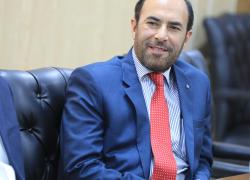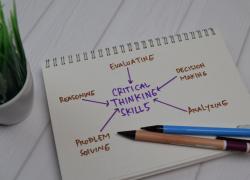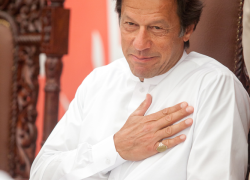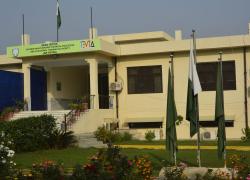Preparation for a job interview: Is it really a tough job?
Numerous research studies revealed that many candidates turns up, on the day of the interview, off-the-cuff. Not because, they do not want to prepare themselves but for the reason that they do not understand, how to gear themselves up. Ironically, very few organizations, the prospective hirers or the educational institutes, for that matter, in this part of the world, offer any concrete guidance, professional training, counselling or coaching to help candidates prepare for the job interview.
How to put oneself in order, how to dress up, how to enter the room, how to occupy the seat, how to behave, how to carry oneself and how to leave the room; are some of the sensitive areas the candidates generally shrug off or even overlook. In the absence of any proper and professional guidance, scores of candidates do not perform well during the job interview. Having limited options, the candidates ought to have prepared themselves, exclusively on their own. This is what we did over the years. Sometimes it did work, sometimes, it did not. Now the things have drastically transformed. Being a professional field, the candidates must take this task more positively and seriously.
During the course of my professional career, I have had the opportunity to get a trenchant exposure to the robustness and complexity of the arena of interviewing for multiple positions, in a variety of settings. In each capacity, first as a candidate, then as a facilitator and very recently as a member of the interview panel, it was an enriching experience and I am under the obligations to share my experiences with those who are just kick starting preparation for a job interview. This series of blog posts are aimed at providing necessary guidance and useful insight for the prospective candidates in order to help them get ready for this important day.
Introduction
Interviewing for a new job can be a huge source of anxiety and stress. And if the candidate is interviewing for a job in a non-native language, the stress can be even higher. Besides, if the candidate is not fully prepared for the interview, the embarrassment, confusion and awkwardness may seemingly be boundless. For those who conduct a job interview, the point is to make sure that the candidates have the necessary knowledge, skills and ability to do the job proficiently and add value to the organization. And for the candidates, they have to prove that they are the best fit for the job.
As a matter of fact, there is no rocketry involved in making an exhaustive preparation for the interview. For any interview, there are some basics, I call it guiding principles, the candidates need to learn, practice and exhibit perfectly well and leave the interview room with the gratified feeling that they did their best. It is also important to remember that for the interview, there is no one right way to get set, however, like any written exam; it also needs proper preparation, due diligence and extensive homework.
Generally, no trick questions or brain teasers are being anticipated, in any kind of interview, wherein the cases otherwise required. Apart from the few subject related or general-knowledge type, one or two questions, most of the time, the questions are so designed that the candidates have to speak mostly about him or herself and if he/she did it perfectly well then he/she will have a fair chance to be selected. Understandably, it is relatively easy to speak about ones oneself as compared to others, but, how one showcases him/herself, it means a lot.
Expected questions
To begin with, the candidates should make a list of the expected questions he/she visualizes the interviewers may ask. Subsequently, they should prepare comprehensive answers/ reply to each of the underlined question. The list should not be too exhaustive; however, the answers must be. I had a list of my own expected questions, for each of my own interviews, as a candidate. What I did practically, I composed the most appropriate answer for each of the listed questions. I prepared those wholeheartedly. I refined the same time and again. With the help of a senior colleague or a friend, I used to arrange a dummy interview for myself and responded to those questions, one by one and practised the same over and over again.
Common questions
Some of the questions, frequently asked during interviews are regarded as ‘common questions’. These are simple, run of the mill questions the candidates must prepare diligently. If asked, it will give a competitive advantage to the candidates over others who enter the interview room without proper preparation. Even if these are not asked, the candidates need to prepare themselves in a very professional and structured manner, so that they may be able to answer other connected questions comfortably and feel confident on the day of the interview. Some of the commonly asked questions are listed below:
- Introduce yourself?.
- Why are you interested in this position?
- Why are you quitting the current/existing job?
- Why should we select you?
- What do you know about the organization (the candidate is looking to work for)?
- What do you know about the position (the candidate has applied for)?
- What improvement will you bring to the organization?
- What are your major strengths and key weakness?
- What are your hobbies?
Conclusion
The bottom line is that whatever may be the outcome, the candidates should prepare themselves best for any interview so that while coming out of the interview/board room, they feel high that they did their best. Even, if not hired, they will have no regrets.
In the next article, “How to prepare mentally and emotionally for the job interview?”, I will explicate, how to best answer these questions, one by one.


















